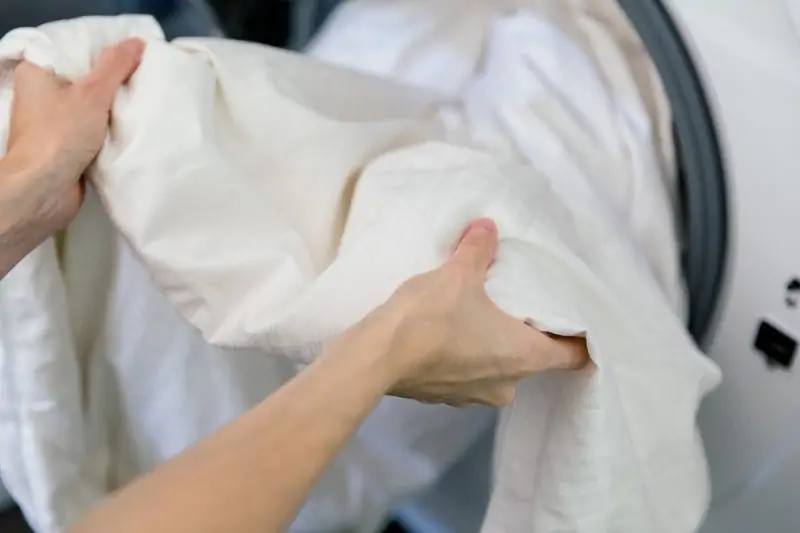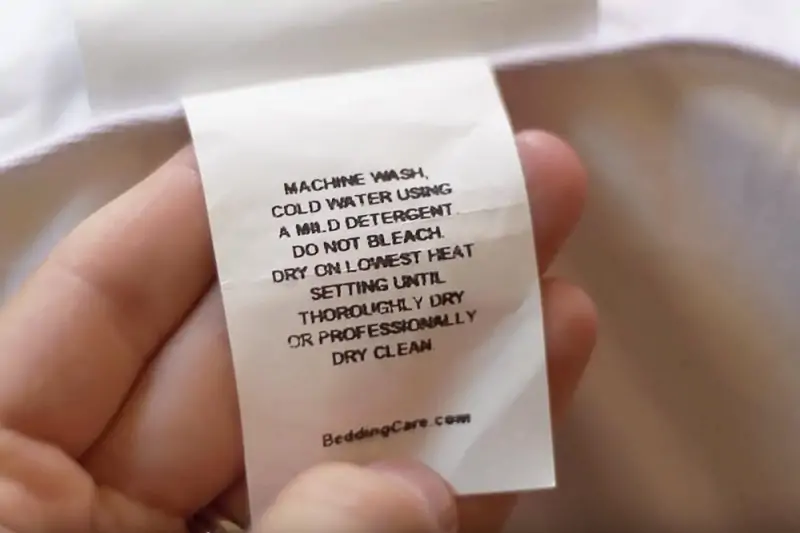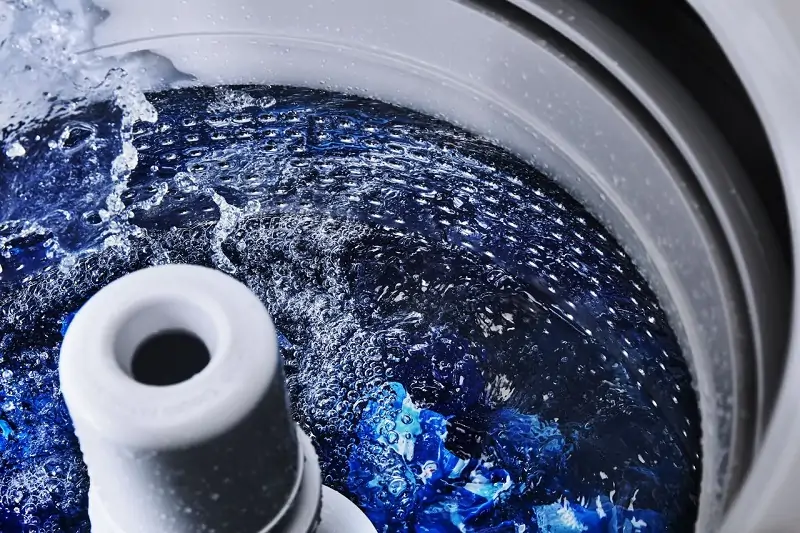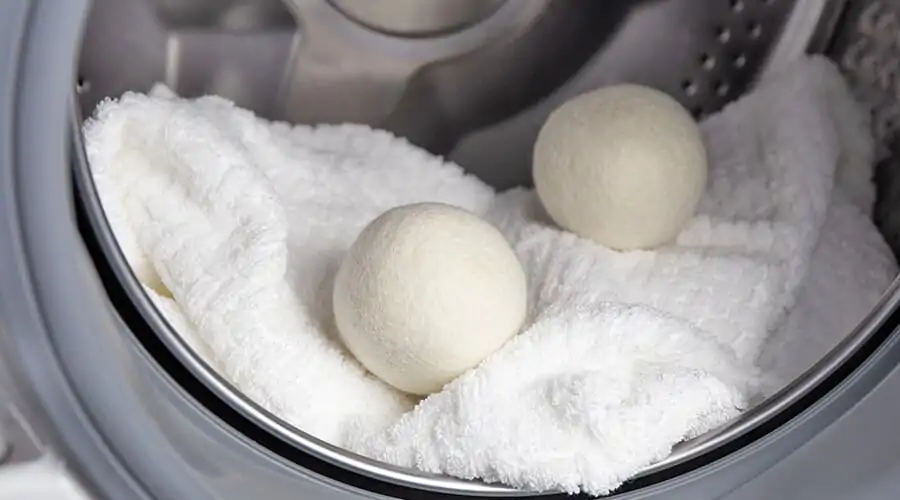Fluff It Up: How To Wash Your Goose Down Comforter

Is it possible to learn how to wash your goose down comforter like dry cleaners do it? Absolutely!
There’s nothing quite like curling up in bed under your warm and cozy duvet, especially on a windy day. Still, like all things made of fabric, your duvet will get dirty when used frequently. Dry cleaners are pros at cleaning because they do it daily. Luckily, we’ve practiced how to clean a down filled comforter at home and will let you know how to do it too.
So, in this guide, we will teach you how to machine wash a white goose down comforter at home: no need to worry about expensive dry cleaning bills; we’ve got you covered!
How to Wash a Goose Down Feather Comforter
Cleaning a blanket filled with delicate feathers requires special care to avoid damaging tender padding. The process can be especially tricky if your comforter used to be immaculately white and you want it to keep this appealing color for as long as possible. Fortunately, we’ve got the right tips for you: here’s a step-by-step guide on how to launder a goose down duvet.
Step 1: Prep Your Blanket First

The first tip on how to wash goose down comforters you should keep in mind is to prepare them before laundering.
Start by shaking it to distribute the feathers evenly. Then, check the seams and fabric for rips, holes, or loose threads. If you find any, sew them up before laundering your blanket, as the feathers can escape and make a mess in the machine.
Step 2: Check the Care Label

Always check the care label on your duvet to see if there are any special cleaning instructions. This trick will ensure you avoid costly damage to your duvet.
The care label will tell you everything you need to know about properly caring for your duvet, including recommended detergents, water temperature, and cycle settings.
It’s important to carefully follow the care label’s instructions to ensure that your bedspread remains in top condition. Some comforters may require special care or handling, so it’s crucial to pay close attention to the label’s details.
Step 3: Wash It in a Front-Loading Machine

If your blanket is machine washable, make sure your washer is large enough to accommodate your blanket without cramming it in. What’s more, it is important that you use a front-loading washer: it will be more gentle on the filling and won’t agitate your comforter as much as a top-loading machine with an agitator will. Top-loading machines often cause the filling to clump together: avoid using them for your delicate feathers.
Step 4: Use a Gentle Detergent

One of the most important things to keep in mind while cleaning the bedcover is to use a gentle detergent that’s specifically designed for washing down-filled items. This will help preserve the natural down filling, keeping your comforter fluffy and cozy.
When shopping for a detergent, look for labels that say “downwash” or “down cleaner” to ensure that you’re getting a mild formula that’s safe for your bedspread. It’s also crucial to avoid using bleach or fabric softeners, as they can damage the delicate filling inside your blanket.
Step 5: Use Cold Water

The next step is to add water. Be sure to use cold water and a gentle cycle. In any case, do not set the temperature to higher than warm (i.e., no more than 40°C or 104°F). Cold water works better in keeping the delicate feathers of your blanket in proper shape than warm or hot water.
Step 6: Air-Dry It Thoroughly

Lastly, dry it. Once your blanket is clean, air-dry it by laying it flat on a clean surface or hanging it outside in the sun. Be sure to dry it thoroughly to prevent mold or mildew growth.
Alternative Step 6: Dry It in the Dryer with Dryer Balls

If you decide to use a drier, avoid using high heat. Instead, pick a low heat setting on your dryer to prevent any damage to the filling. To make your duvet fluffy and cozy, add a few clean tennis balls or dryer balls to the dryer. These little helpers will bounce around and help break up any clumps of filling, resulting in a more even distribution of the filling.
Whichever drying method you choose, make sure your duvet it’s completely dry before storing it away.
FAQs
In this section, you will find the answers to some commonly asked questions about washing your comforters.
Of course! Contrary to popular belief, you can launder a duvet filled with delicate feathers at home. Washing your comforter every 6-12 months can help keep it clean, fresh, and fluffy. But you need to follow the proper cleaning instructions to avoid damaging the delicate filling.
Yes, but you need to be careful. The agitator in top-loading machines can damage the delicate feather clusters and leave your duvet looking lumpy and uneven. So, use a front-loading washing machine, if possible, as they are gentler on the fabric and won’t agitate the feathers as much as a top-loader. Also, ensure the blanket fits comfortably in the washing machine without being too tightly packed or loose.
The best way to wash a goose down comforter is to use a gentle cycle with cold water, no warmer than 40°C (104°F). Avoid using hot water or bleach, as it can damage the feathers and cause them to lose their loft. So, play it safe and stick to cold water.
Technically, this will depend on the frequency of use. If you use it daily, you might want to launder it every six months. If you use it less frequently, you can clean it once a year. On the other hand, people who suffer from allergies or have pets may want to clean them more frequently. Besides this, you should clean it immediately if you notice any stains or spill something on it.
Conclusion
While cleaning comforters filled with delicate feathers may seem a challenging task, it is actually a simple process if you follow the above-described tips. Just prepare the duvet before laundering, stick to a front-loading washing machine, set it to the right temperature, and use cold water and gentle detergent. Then, dry on low heat. By learning how to wash a goose down comforter at home, you can ensure that it stays clean, fluffy, and comfortable for years to come.